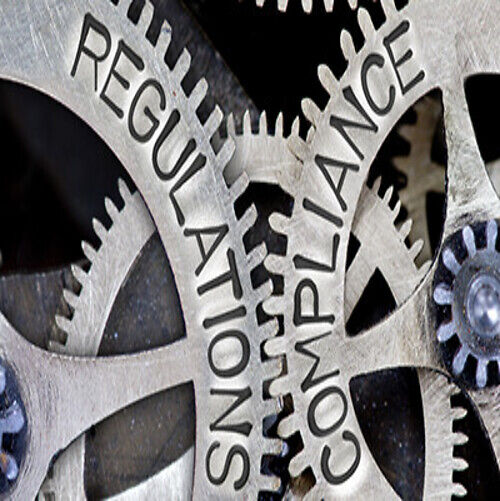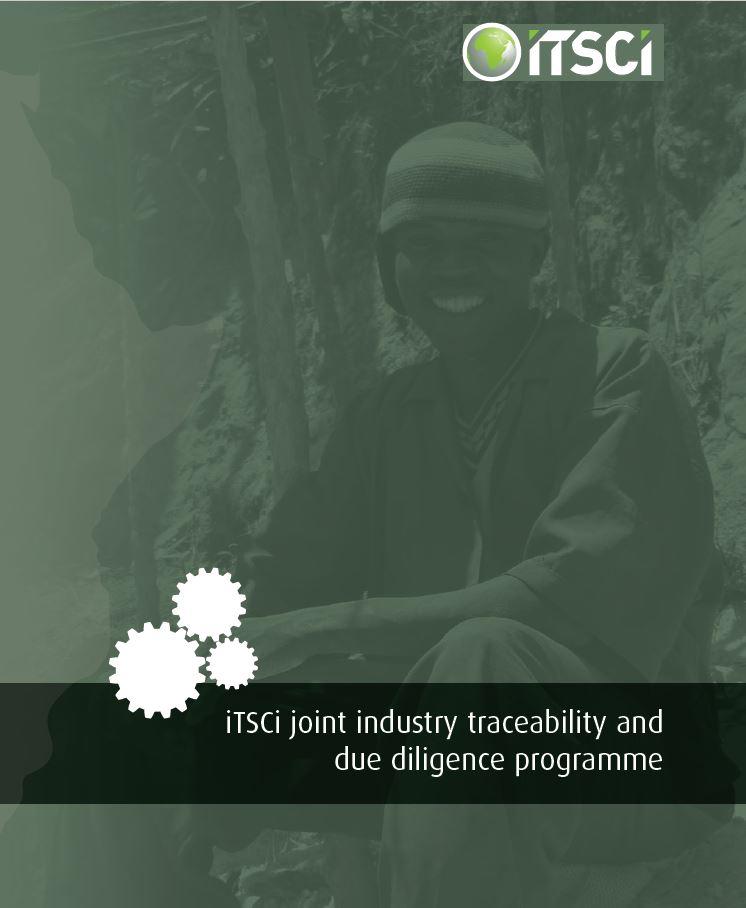Providing Support for Due Diligence to Enable Responsible Trade
ITSCI works to achieve avoidance of conflict financing, human rights abuses, or other risks such as bribery in mineral supply chains. Our reference is the OECD Due Diligence Guidance and the OECD has confirmed our standards are 100% aligned with the guidance; see here.
Our monitored supply chains allow metal users to source responsibly and avoid total disengagement from high risk areas, while ensuring that miners continue to benefit from responsible business opportunity.
By making available unique and credible information to businesses, government authorities and civil society participation in ITSCI allows them to take appropriate and effective decisions on due diligence and steps towards progressive improvement.
Sharing of our detailed and credible information, which is generated to a common standard by a range of appropriate experts, encourages accountability of all stakeholders, and as a result, reduces business risk and increases opportunity for all.
ITSCI currently focuses on Burundi, Democratic Republic of Congo, Rwanda and Uganda.
Our Vision
Responsible sourcing of 3T minerals from conflict-affected and high-risk areas (CAHRA) lessens the risk of unfounded disengagement by businesses. Supporting companies and promoting due diligence best practices and improved governance through an industry scheme not only reduces risks of serious abuses but also creates opportunities for economic and social development in extracting countries, while contributing to the formalisation of the mining sector.
By being able to benefit from their natural resources, local communities, civil society, governments and businesses, including artisanal miners (ASM), are enabled to reinvest in their respective communities, institutions, and supply chains, leading to improved livelihoods, better governance practices and increased peace and stability.
Watch our videos here
ITSCI Overview (English / Francais / 中文)
ITSCI in Detail (English / Francais)
ITSCI tagging instruction (English / Francais)
ITSCI Members’ Testimonials 10th Anniversary
ITSCI programme Manager, Roper Cleland, at the EU Conflict Minerals Regulation Virtual Event, January 13-14 2021
ITSCI’s session at the OECD’s 14th Forum on Responsible Mineral Supply Chains, April 2021
PARTICIPATING MEMBERS
With 100’s of member companies from over 40 countries, from artisanal mine cooperatives to major multinationals, the range and opportunity for participants is immense
OUR PARTNERS
IMPLEMENTATION TEAMS
GOVERNANCE & FUNDING
What We Do to Support Stakeholders & Achieve Results
- Helping stakeholders understand due diligence
- Making company information transparent
- Identifying and integrating mining areas
- Implementing traceability of mineral sources
- Providing a whistleblowing mechanism
- Recording plausible allegations of risk
- Providing contextual reports on governance
- Advising and reporting on risk resolution
- Involving local communities
- Auditing upstream companies
- Promoting transparency of annual reporting
- Helping companies with business challenges
- Addressing concerns beyond conflict
1. Helping stakeholders understand due diligence
ITSCI supports all stakeholders in the practical implementation of the theoretical recommendations of the OECD Due Diligence Guidance. We provide advice to companies and authorities on a daily basis regarding policies, procedures, assessments, risk management and reporting, and also organise official training events for different stakeholder groups, including the local committees and high level officials. t
2. Making company information transparent
Companies who are committed to due diligence and wish to be recognised as responsible suppliers apply to become members of ITSCI to demonstrate that commitment to business partners, as well as publicly. Applicant companies submit important information such as ownership, trade history, due diligence policies and plans, which are assessed for risks in a preliminary assessment by our independent evaluator. In the case of companies that are then accepted as members, a summary of their status, due diligence understanding and risks are published, together with recommended improvement actions. See Company Management Policies.
Understanding company management and policies is important for OECD Step 1
3. Identifying and integrating mining areas
Our field staff get to know their local area and work with local authorities, land owners and mining communities to identify new mine sites. They then visit to check expected production levels, security and other conditions, and report to ITSCI management. If conditions are acceptable the sites are integrated into the traceability and monitoring system. These initial mine baseline reports are updated as necessary as the mine begins to produce and circumstance change, and since our field teams use the same transport routes to reach the mines they can look out for illegal activity on their travels. Information on individual mine location and production is not made public since that is commercially valuable information that can affect price and competition. In the DRC, we participate in the official one-off ‘validation’ missions when they occur but do not use these as the sole basis for integrating sites.
Identifying mine areas and involved actors is a vital part of OECD Step 1
4. Implementing traceability of mineral sources
Once a mine is identified and approved, traceability is implemented by the relevant government agents. ITSCI issues tags to those government agents for use at the approved sites, and the agents record relevant data associated with each bag of mineral as the tags are applied. The agents are regularly on site and are responsible for assuring the source of minerals tagged. Similar data recording takes place at processor and exporter locations and all data is transmitted, either by internet or phone network to the ITSCI data centre where it is verified and checked for errors and anomalies. ITSCI field teams support the government by training agents and following up on any potential issues of fraud or other challenges.
Traceability is important for identifying all actors in the supply chain as per OECD Step 1. Production from individual mining areas is commercially valuable and is not public but members receive updates on production changes and aggregated data is available. See Production Files.
5. Providing a whistleblowing mechanism
We want to make sure that everyone has the opportunity to provide information on breaches of ITSCI procedures or Annex II risks and we provide a whistleblowing system to maximise risk reporting. In the DRC we also support an additional network of community based monitors to provide input above and beyond that available to us via day-to-day field activity.
Whistleblowing mechanisms are expected in OECD Step 1 and details of ITSCI’s are available HERE.
6. Recording plausible allegations of risk
ITSCI aims to have information on every aspect of trade in the upstream supply chain on a continual basis, not just through occasional audit. We have many sources of information at the local and international level and use this information to identify plausible allegations of risks associated either with breach of ITSCI procedures and/or risks that relate to OECD Annex II. Our incident reporting team gather reports most commonly from field staff and members companies, evaluate their level of seriousness, and ensure that the risk is reasonably plausible before recording it for further action.
ITSCI communicates the most serious incidents to our member companies as soon as sufficient information is available to suggest a real risk. ITSCI provides the all important on-ground-assessment team recommended in OECD Step 2. Incidents are not made public at this point.
7. Providing contextual reports on governance
While many of our members are based in the high risk areas, a large percentage are mineral buyers and smelters who are based anywhere around the world, and who may not visit the mining areas very frequently or at all due to the cost and complication involved. In order to help those international companies understand the sectors governance challenges and progress, our independent evaluators also produce occasional Governance assessments which explain the local situation and cause of risks. See Governance Assessments.
Contextual governance assessments contribute to understanding risks for OECD Step 3
8. Advising and reporting on risk resolution
Once a plausible risk has been identified, the stakeholders that are implicated are contacted for their input and reaction. Following receipt of additional information and clarification over a period of time, the ITSCI reporting team summarise events according to all available information, suggest actions for different parties to resolve risks, and, follow up to report on whether those action have been successfully completed. Of course, all companies are ultimately responsible for decisions on risks and whether they continue to purchase minerals affected, but in most cases the actions suggested by ITSCI are considered appropriate. See Incident Summaries.
Summaries of incidents and their resolution are provided regularly to members, and published at a later date. This information is critical to OECD Step 3.
9. Involving local communities
In the same way as we involve community whistleblowers in risk reporting, we also involve local communities in risk resolution. ITSCI establishes, and facilitates meetings of the stakeholders both close to the mining areas, as well as at country or province level. The aim of these meetings is to allow discussion of issues that arise, suggest, and participate in resolution of risks. These stakeholder meetings typically involve mining authorities, police, army and other agencies, civil society and companies. See Local Stakeholder Meetings
Constructively engaging with local stakeholders regarding risks is key to OECD Step 3. To ensure transparency, ITSCI publishes stakeholder meetings.
10. Auditing upstream companies
ITSCI performs independent audits on member companies on a regular basis. Our auditors travel in high risk areas, and to international mineral buyers, in order to evaluate their progress in due diligence according to a well-defined checklist. Audits are carried out according to expectations of ISO 19011. Audited companies receive detailed information on their evaluation, and a summary of their performance is provided to members, and published at a later date. See Company Audits.
ITSCI audit reports of our members contribute to auditing at smelters by other organisations and are essential for OECD Step 4
11. Promoting transparency of annual reporting
All our member companies are reminded to publish a report on their due diligence practices each year in order to highlight what progress has been made, and what challenges they face. These reports are not verified by ITSCI, and the contents are the responsibility of the company. However, ITSCI helps companies to make the reports public since many do not have their own websites. See Company Annual Reports.
Company annual due diligence reports are expected for OECD Step 5.
12. Helping companies with business challenges
Aside from all of our activities which help support the implementation of the OECD Guidance, we are also frequently asked to help resolve other business challenges in mining regions, for example, questions over new ‘local taxes’, commercial disputes and many other issues. ITSCI staff are trusted to provide independent assistance in these matters and resolution is important to us to maintain a steady flow of minerals.
13. Addressing concerns beyond conflict
Now that we have successfully established process to address traceability, due diligence and business issues, we are also welcoming opportunities to extend our programming to projects beyond conflict issues such as child labour, health and safety and other community issue. See our Support Page.





